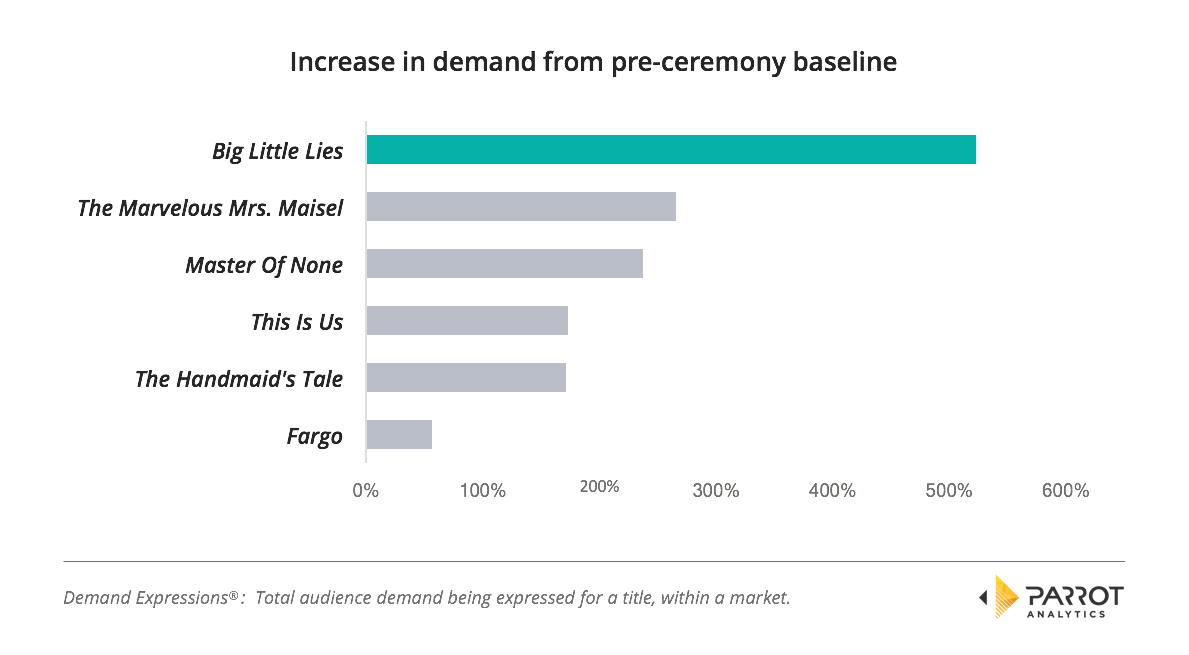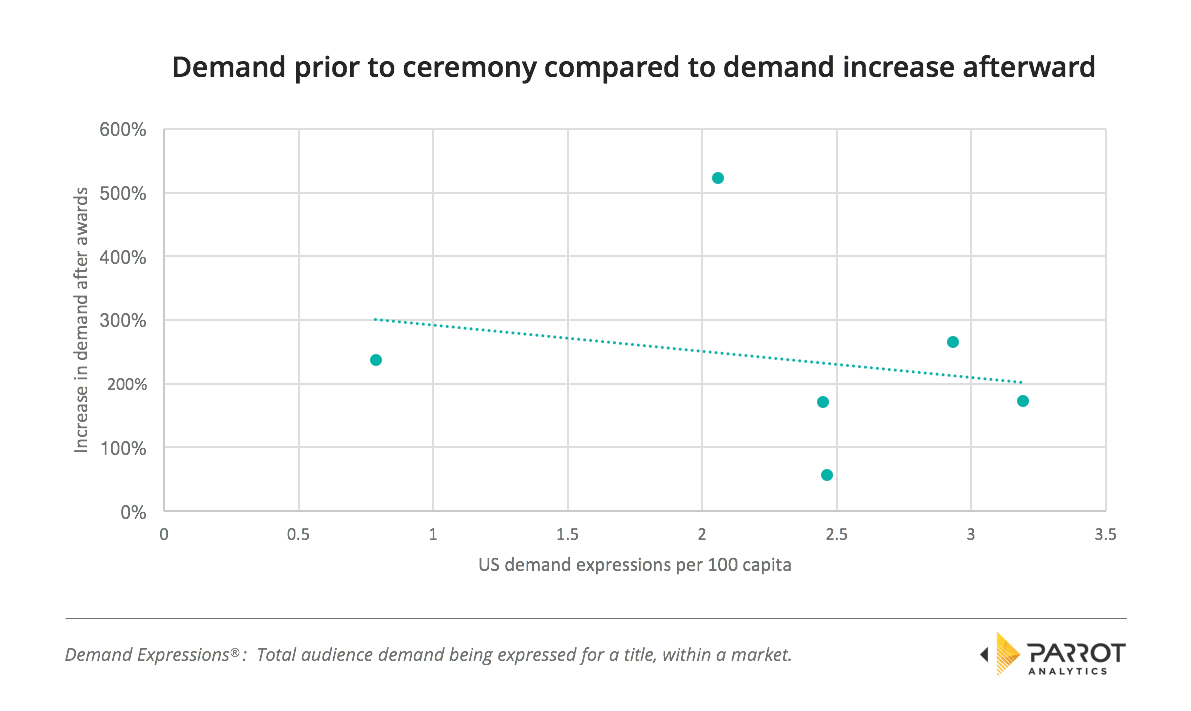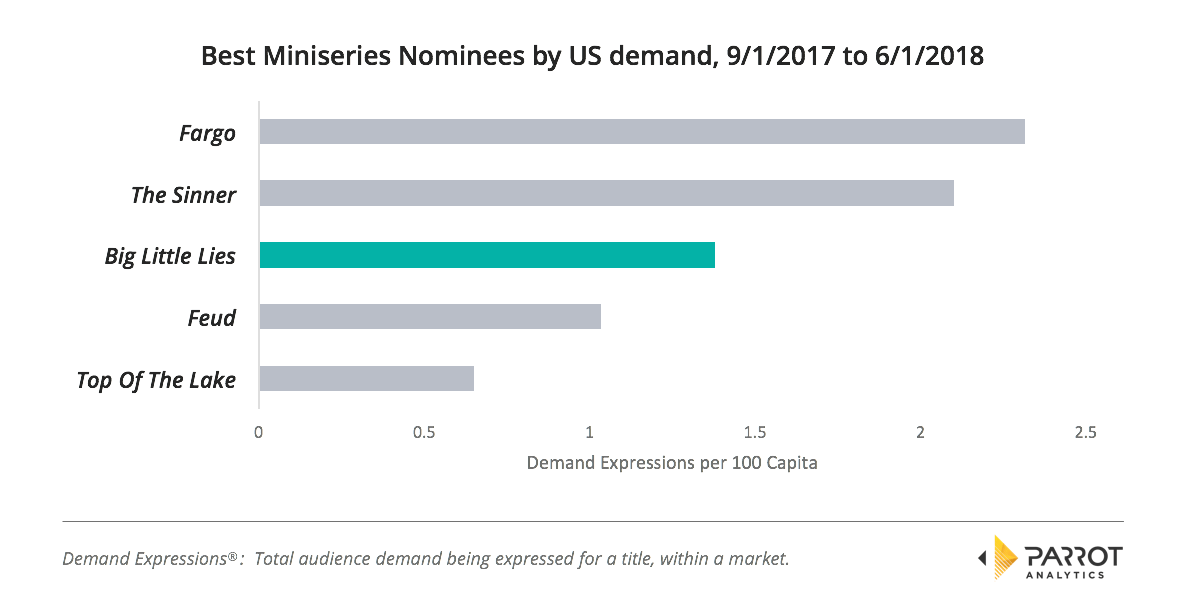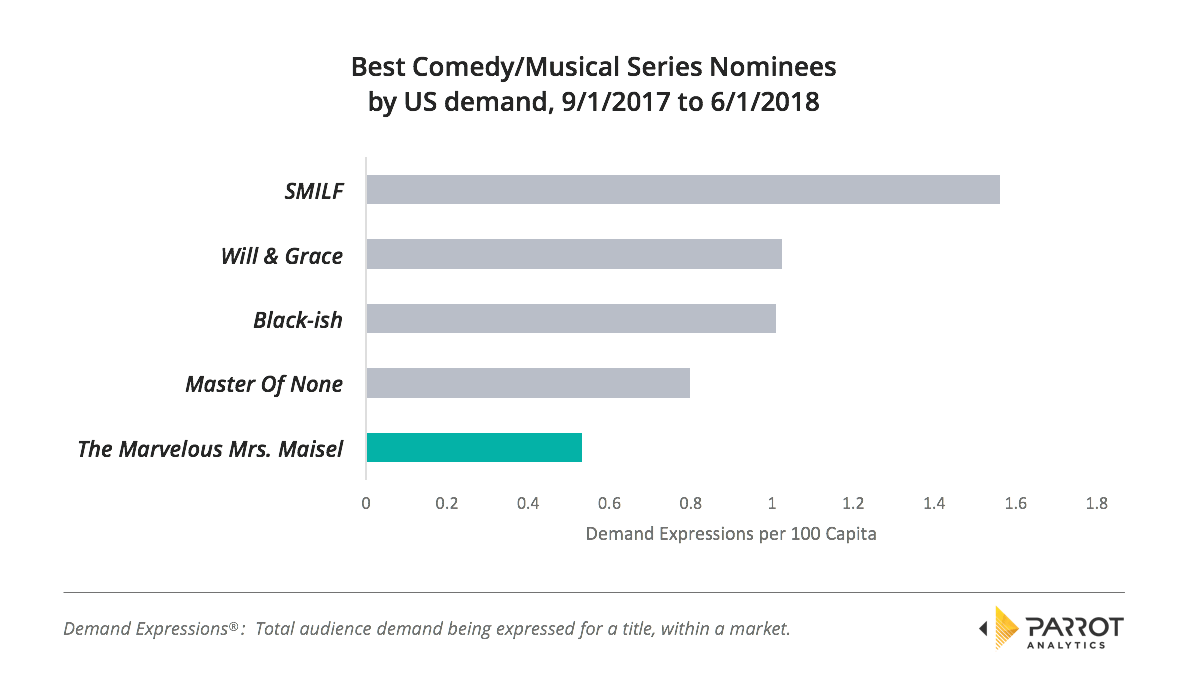On 7th January 2018, stars from American television and film gathered for the 75th Golden Globes awards in Hollywood. We were naturally very interested in the TV side of the event, as some of our favorite shows of the year were nominated!
Now that the winners are known, we have put together our demand analysis of the nominees to showcase the effect of winning a Golden Globe has.
Which shows benefited most from winning?
As we did for the 74th Golden Globes, we can first look at which of the six shows that won an award benefited the most from the honour.
By comparing the ‘baseline’ demand for each show – that is, the average demand for each show over the two weeks prior to the ceremony – to the peak demand for each show following the ceremony we can see which show gained the most demand immediately after the awards were handed out.
It is tempting to say that this is due to the number of awards won as Big Little Lies was the clear winner of the TV awards, ending the night with four trophies. However, this is unlikely to be a significant factor as both The Handmaid’s Tale and This Is Us rose by the same amount, 200%, yet The Handmaid’s Tale won two awards and This Is Us won one.
In our last Golden Globes article, we discovered that there was a 0.21 correlation between demand before the ceremony and demand increase afterwards. Re-running the analysis for this year gives us the following graph:
In fact, when the results for the 74th and 75th Golden Globes are combined, the correlation is -0.1. In other words, the demand of a show before winning is almost independent of the increase in demand after. This makes a lot of sense; with a small number of shows even nominated, which one gets talked about most is very dependent on external factors.
But can you use any of this to predict the 76th Golden Globes winners next year? To find out, we investigated if nominee demand is a good predictor of award success.
Which shows would have won if the awards were decided by demand?
As we all know, the Golden Globes awards are not a simple popularity contest; they are recognition of outstanding artistic achievements in the field of television decided by critical merit. However, going in to the awards, could you have predicted the winners for each category by looking at the demand for each of the shows nominated?
To find out, in each of the categories for shows, we determined the average demand for each nominee in the year between the 74th and 75th Golden Globe ceremonies. As the Golden Globes honors American television, we used demand data from the US only.

In another triumph for streaming services, Amazon’s The Marvelous Mrs. Maisel won the award for Best Comedy/Musical series.
However, if you had picked the winner for this category based on demand, you would have been completely wrong; prior to the award, The Marvelous Mrs. Maisel had the lowest average demand of all the nominees!
The final award for televisions shows was for the best miniseries. As with all the categories, this was filled with fantastic titles, but the show with the most demand wasn’t the winner:

As we stated at the beginning, the Golden Globes are for artistic merit, they are not a popularity contest for TV shows. We think that these results prove that statement is true.


